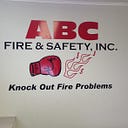Fire Safety Myths Debunked Separating Fact from Fiction
Introduction
Fire safety is a critical aspect of protecting lives and property, but misinformation and myths can lead to misunderstandings and potentially dangerous practices. In this comprehensive guide, we’ll debunk common fire safety myths, provide accurate information, and offer practical tips to enhance fire safety awareness and preparedness.
I’ll Smell Smoke Before a Fire Becomes Dangerous
Fact: Not all fires produce noticeable smoke or odor in their early stages. Fires can spread rapidly, especially in enclosed spaces, without warning signs. Install smoke detectors to provide early warning and always have a fire escape plan in place.
Fire Sprinklers Accidentally Activate and Cause Water Damage”
Fact: Fire sprinklers are highly reliable and only activate in response to high temperatures caused by fire. Individual sprinklers activate independently, minimizing water damage to the affected area.
I Don’t Need a Fire Extinguisher
Fact: Fire extinguishers are essential for quickly containing small fires before they escalate. Always have accessible fire extinguishers and ensure that everyone knows how to use them safely.
I Can Use Water to Extinguish Any Type of Fire
Fact: Water is effective for extinguishing Class A fires (ordinary combustibles like wood and paper) but can be dangerous or ineffective for other types of fires (e.g., grease fires or electrical fires). Use the appropriate fire extinguisher for each fire type.
I’ll Stay Low in a Fire to Avoid Smoke Inhalation
Fact: The safest response to a fire is to evacuate immediately. Crawl if necessary to avoid smoke, but prioritize exiting the building rather than remaining inside
Fire Sprinklers Activate All at Once, Flooding the Entire Building
Fact: Fire sprinklers operate independently, with only the sprinkler heads directly affected by fire activating to release water. This targeted approach minimizes water damage.
Fire Doors Should Always Be Closed to Contain Fire
Fact: Fire doors are crucial for compartmentalizing fires, but they should remain closed only during a fire emergency. Keeping fire doors closed at all times can hinder safe evacuation.
I Can Wait to Replace Dead Batteries in Smoke Detectors
Fact: Smoke detectors with dead or missing batteries are ineffective. Test smoke detectors monthly and replace batteries immediately when needed.
I Can’t Be Burned by Smoke, Only by Flames
Fact: Smoke inhalation is a significant hazard during fires and can cause serious injury or death, even without direct exposure to flames. Evacuate immediately if smoke is present.
Fire Safety Is Only Necessary in Commercial Buildings
Fact: Fire safety is essential in all environments, including homes, schools, and public spaces. Everyone should prioritize fire safety measures and be prepared for emergencies.
Conclusion
By debunking these common fire safety myths and providing accurate information, we can enhance fire safety awareness and preparedness. It’s crucial to rely on factual knowledge and follow recommended fire safety practices to protect ourselves and our communities from the devastating impact of fires. Remember, fire safety is everyone’s responsibility, and staying informed can save lives. Stay vigilant, stay prepared, and prioritize fire safety in all aspects of daily life.
